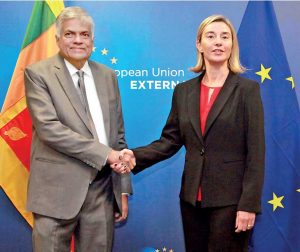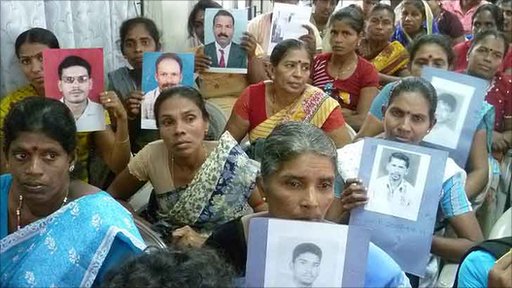Colombo, October 21 (NIA): The European Union (EU) has said that it will restore the General System of Preferences Plus (GSP Plus) trade concession to Sri Lanka if it sees satisfactory progress in the field of human rights and ethnic reconciliation.
That essentially means that the Sri Lankan government must implement the October 1, 2015 resolution of the UN human Rights Council (UNHRC) which Sri Lanka had cosponsored with the United States.
If satisfactory progress is registered, Sri Lanka should get the GSP- Plus concession by mid 2017.
These were stated by Sri Lankan Prime Minister Ranil Wickremesinghe after talks with the leaders of the EU at Brussels recently. Wickremesinghe told the Sri Lankan media that the EU is now making a “technical assessment” of Sri Lanka’ case, which essentially means assessment of the progress made in human rights and ethnic reconciliation.
The technical evaluation report will be placed before the European Commission and thereafter before the European Parliament for approval, he said.

The GSP Plus concession was first given in 2001-2002, when Wickremesinghe was last Prime Minister. But it was suspended in February 2010, months after Eelam War IV ended, on the grounds that the then Sri Lankan government headed by Mahinda Rajapaksa did not take steps to make amends for the war crimes allegedly committed by Sri Lankan forces. The virtual incarceration of about 300,000 war refugees in army run camps ringed by barbed wire fencing also went against Sri Lanka.
Sri Lanka’s lost about US$ 150 million annually as a result of the withdrawal of the GSP Plus concession. Its products became 10 percent more costly in the European market. However, some Sri Lankan exporters did not pass on the tax burden to consumers in order to remain competitive but lost money in the process. The apparel sector was the greatest loser as 50 percent of its exports went to the EU.
As per the UNHRC timetable, Sri Lanka has time until March 2017 to show improvement in the human rights situation. It is giving back some land to civilians which its military had grabbed during the war. It is in the process of setting up an Office of Missing Persons to trace the missing. It has finished the consultative process for rewriting the constitution. It has restored freedom of speech. It has stopped abductions.

But as the UN Special Rapporteur for Minority Issues, Rita Izsak Ndiaye, who toured Sri Lanka for ten days this month said, progress could be faster, as delay could result in the victims losing hope and turning hostile to the government’s efforts.
She pointed out to the ill-effects of the excessive presence of the mono-ethnic military in the Tamil and Muslim areas of the North and East. She also pointed to the lack of adequate representation of the minorities in the State’s administrative and military structures and decision making bodies. The government’s language policy still remains a barrier to communication between the State and the minorities. The Prevention of Terrorism Act has to be repealed and replaced by an internationally accepted law .But the current draft bill is in many ways draconian and regressive. It has now gone for consideration by the Judicial and Security Oversight Committees of the Sri Lankan parliament.




























































